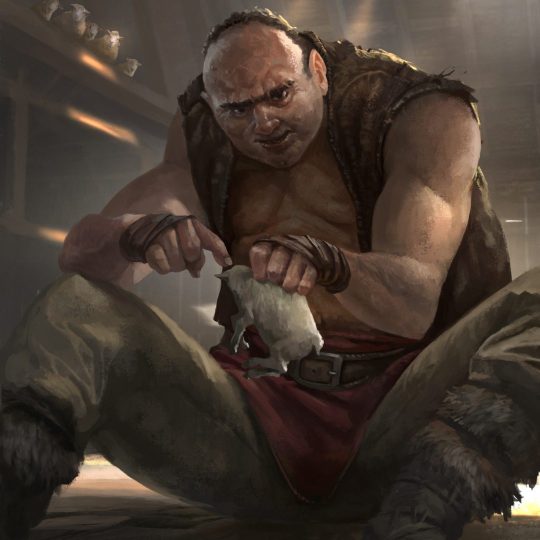
How to Keep Players Invested in Your Tabletop Game
Most of us come to the game to play it. Your players want to get involved in your world and your story, Game Masters, or they wouldn’t have come in the first place. Even so, though, you know the difference between a game people come to play out of habit and one they spend time away from the table thinking about. And let’s be honest, you really want that latter one, don’t you?
Of course, it takes more than just a couple of tips and tricks to run a great game, but having some of the right tools can’t hurt you. So let’s talk about a few ways to keep your players wanting more.
Pay attention to the things your player characters really, really want … and never let them have it
Oh, absolutely give them little hints and tastes of it here and there. Let them brush right up against it. But the second it’s theirs forever, that’s game over. They have what they wanted, that desire is sated, and there’s no need to really want it any more after that. No one desperately wants something they already have.
In the game my Saturday group is playing in right now, all the party rogue, Stalkurn, wants is this purple and gold palanquin he caught a glimpse of early on. It showed up once and he’s been tailing it ever since. He asks about that palanquin every single session and it’s become this comical running joke with him that he gets so close to acquiring it and then it’s not there anymore.
There’s no doubt in my mind he’ll end the campaign with that palanquin in his possession, but right now it’s what’s driving him to move forward. I bet he has dreams about that thing. I can’t say I’ve never been in that situation before myself.
I am the kind of boosted animal that loves character interactions more than anything else. I see an NPC I like and then I want to romance them, and the longer I don’t succeed at that, the more interested I am in romancing that particular NPC. As a matter of fact, I feel cheated when it resolves too quickly, because the best part is the unresolved tension and the thrill of the chase.
Any character goal can be like that. Like Stalkurn and his palanquin, the harder it is to come by, the more the character is going to want it. They are the silly rabbit and whatever they want is the cereal. That’s your carrot on a stick and it’s worth more than platinum, so don’t give it up too easily.
Leave some open questions

A “limited” format tournament of Dungeons & Dragons Miniatures, where “limited” refers to the format. In this format, you draw your figures from two fresh packs of miniatures only, as opposed to using your presumably extensive personal collection. (Photo credit: Wikipedia)
Don’t explain everything. Especially when your players immediately ask for a clarification. Now, I’m not talking about really serious, need-to-know things. If an NPC is giving out a quest and they know that the sewer they’re sending the party into is swarming with cultists, it’s in their best interest to tell them about that, and keeping information from the party that they really need is just uncouth. But small things, things they’re likely to wonder about?
“Why does he have that scar?”
“Why does everyone in town wear a mask after dark?”
“Why is the guy we keep getting information from in prison?”
“Who keeps selling us out to the city guard?”
“Dude, where’s my vardo?”
Don’t answer them. Some of these make the party curious and make them want to explore your world. Others are designed to make them paranoid. All of them are things your player characters can go out and find the answers to on their own, and when they start going to find these answers, you know they’re hooked. These are things they’re going to be thinking about away from the table and daydreaming about the answers to.
Curiosity is a part of the humanoid condition.
Mind you, I wouldn’t advise dragging them out unnecessarily. I’m just saying if they want to know, make them go find out in character. If they hit the point that they’ve got the answers, go ahead and give them up, that’s fair play.
Let the players set their own agendas

Old time gamers, but 1st time 5e players.
If they’re plotting, let them plot. Why would anyone ever see that as a problem? I mean, if your player characters have their own stuff they want to do, they are doing your job for you. That player who is always setting up dominoes is always my favorite to have at the table. Especially if those dominoes are leaning up against something potentially combustible.
Try not to think of it as disruptive when he temporarily enchants a pair of shoes to fly and then sells a bunch of replicas to people in a town he thinks he’s never going to come back to. I mean, yeah, it is a little bit disruptive, but it’s also an amazing opportunity for you as a GM because imagine the look on that player’s face when an NPC a few towns over steps off of a roof to their death and they find out that NPC was wearing a pair of the “Boots of Flying.”
Yeah, it’s gonna be a silly adventure, but your PCs made this happen, and honestly it sounds like a really fun time to me. Can they track down all of the shoes before more people die, or at least get word out that they don’t work? Are they going to be run out of town on a rail? Will the rogue (because let’s be honest, it was probably the rogue masterminding this one) learn his lesson (but let’s be honest, the answer to that is probably “no”)?
I’m so serious about this. Instead of getting frustrated with the whimsy, indulge it. Maybe your campaign will turn out a little more silly for it, but that’s not necessarily a bad thing, and if you can roll with the funny parts, it’ll make the more serious ones stand out all the more for it.
Give out cool sounding titles to the PCs

Nothing feels better than walking into some town somewhere and NPCs pointing at you and whispering like, “Holy crap, is that THE Bloody Talon?” or some other neat sobriquet like that. One of two things are likely to happen.
First, the player might love it. They might start using it and writing it on their notebooks and introducing themselves with that title. They might adopt it as a part of their identity and revel in being the Daughter of the West Wind. In that case, job well done. You gave one of your players something they think is really super cool and they won’t soon forget about.
Second, though, they might absolutely detest the nickname and get salty any time an NPC calls them that. Guess what? That’s not a loss. Even if they absolutely hate the nickname, it’s still something the NPCs are calling them and it gives them a chance to have their character grumble about it. And even if they’re grumbling, they are probably still going to like the attention a little bit.
It cements them as a part of the world they are in.
Let your NPCs react accordingly to the PCs
 If one of your players is playing a super tall character, they probably aren’t doing it so it can fade into the background without comment. Describe how the NPCs look up at them and maybe how they’re a little intimidated. If a character is flirty, have the NPCs blush and get kind of bashful. If a character is scary, let the NPCs be afraid.
If one of your players is playing a super tall character, they probably aren’t doing it so it can fade into the background without comment. Describe how the NPCs look up at them and maybe how they’re a little intimidated. If a character is flirty, have the NPCs blush and get kind of bashful. If a character is scary, let the NPCs be afraid.
It doesn’t cost you anything to have most commoners react the way the PCs want them to. Of course there is always a bigger fish and there will always be exceptions to these rules, but make it the rule often enough for those to be the exception.
Honestly, your friend sitting in the corner trying to be that edge lord tiefling assassin might be making you want to scoff, but the truth is, they’ll have a lot more fun if you play along. Let them be the person they want to be in the world the two of you are playing in together. Do it for the whole party.
Basically, what I’m saying is, pay attention to your PCs. Pay attention to the things about them your players think are important enough to mention, and play those up so they know you’re paying attention. Care about them, care about their characters, because when you care about the party as individuals, it makes the game more fun for everyone involved. Including you.
Don’t forget they should always have something to shoot for
The things the PCs are grabbing for are the most important. Those are the heart and soul of your campaign. You can always make suggestions, give them antagonists to fight, shape your world so there’s always something for them to go and do, but ultimately their choices make the game. Keep your eyes and ears open. It’s your job to know what bait they’ll bite for.
Related articles
[amazon_link asins=’0786965592,0786955570,1601258879′ template=’ProductCarousel’ store=’nerdarchy-20′ marketplace=’US’ link_id=’e795d706-1a72-11e7-bb23-dbe2b4be4280′]













No Comments